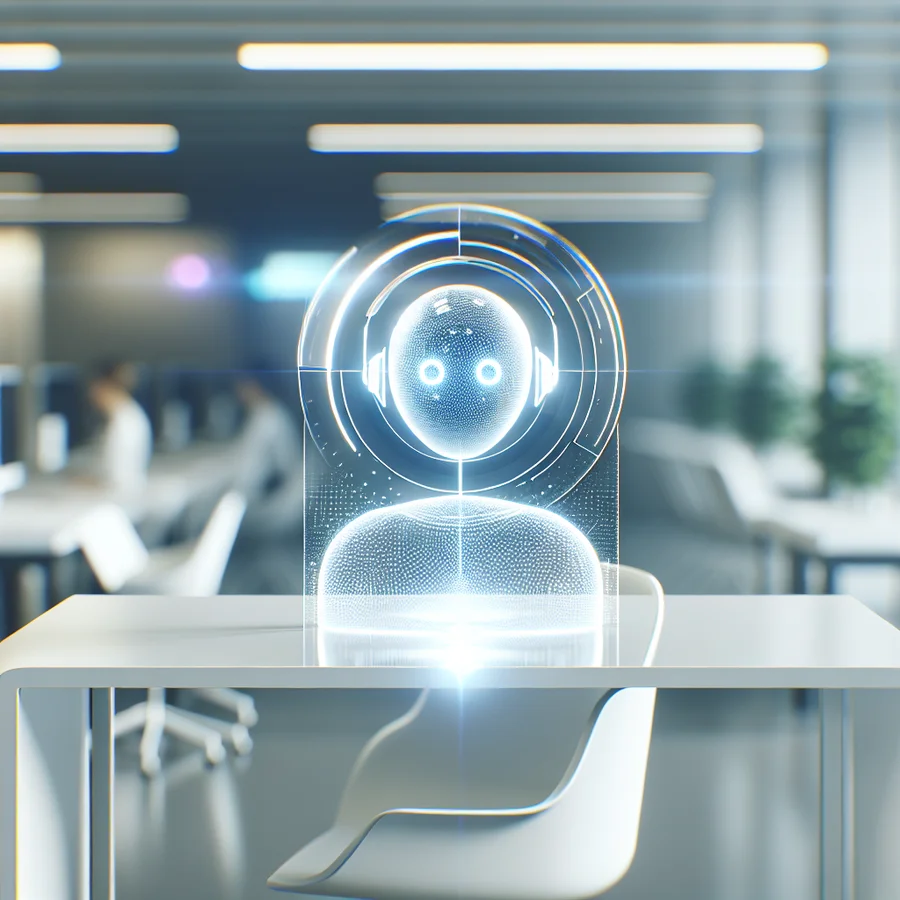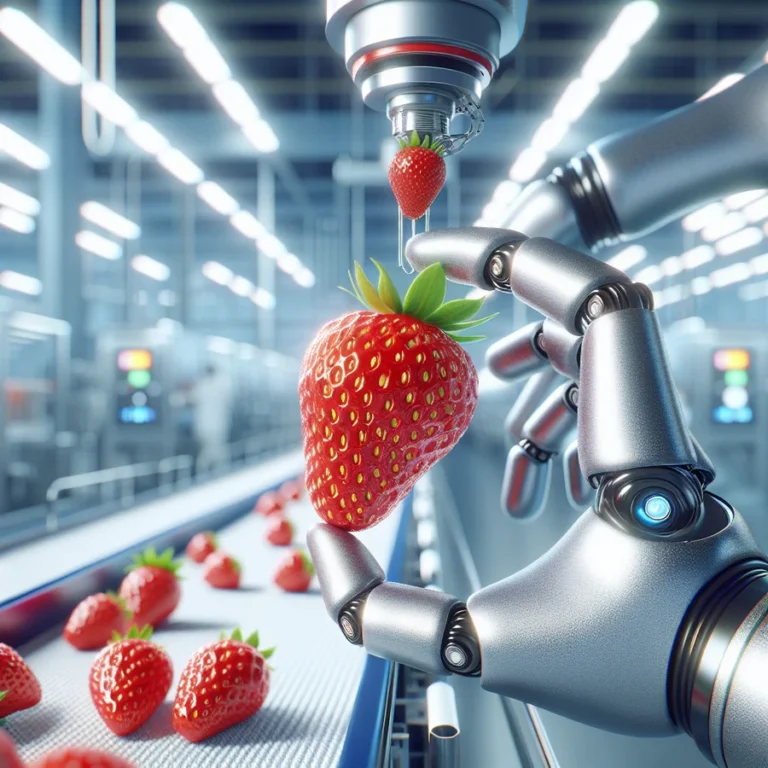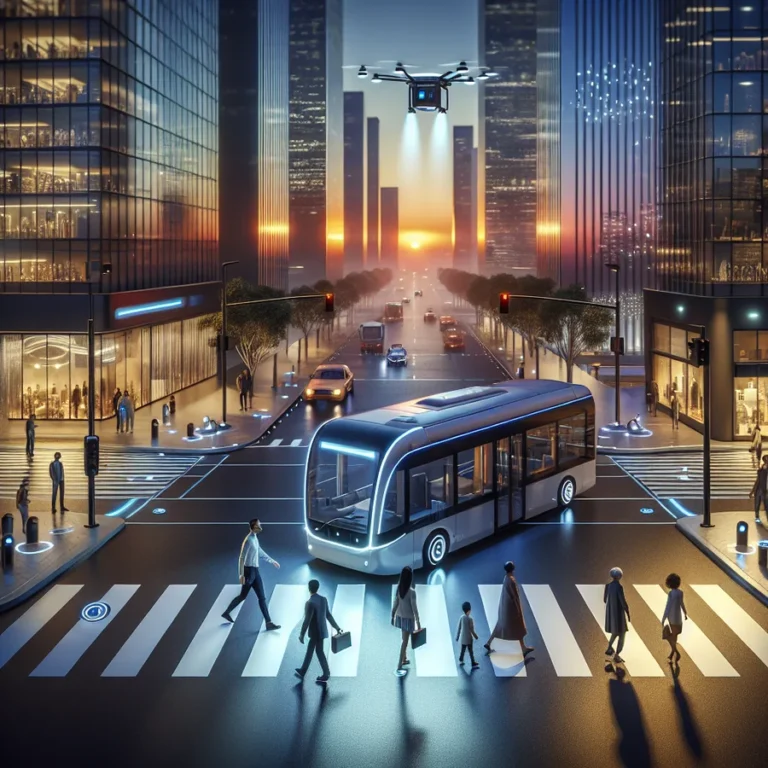AI-Powered Chatbots: Enhancing Customer Service in 2025
Imagine a world where customer service is instant, personalized, and available 24/7. That world is quickly becoming a reality thanks to AI-powered chatbots. By 2025, these intelligent virtual assistants will be revolutionizing how businesses interact with their customers, offering unprecedented levels of efficiency and satisfaction. This guide explores the transformative impact of AI-powered chatbots on customer service, examining their benefits, applications, and future trends.
Are you ready to discover how AI-powered chatbots are reshaping the customer service landscape? This guide will equip you with the knowledge to understand and leverage this powerful technology, ensuring your business stays ahead in the age of AI.
The Rise of AI in Customer Service
Artificial Intelligence (AI) is no longer a futuristic concept. It’s a present-day reality transforming industries worldwide. Customer service is at the forefront of this revolution. Companies are increasingly adopting AI to enhance efficiency, personalize interactions, and reduce costs. Let’s explore the key factors driving this adoption.
- Rising Customer Expectations: Customers today expect instant responses and personalized experiences.
- Cost Pressures: Businesses are constantly seeking ways to optimize operations and reduce expenses.
- Technological Advancements: AI technologies like Natural Language Processing (NLP) and Machine Learning (ML) have matured significantly.
What are AI-Powered Chatbots?
An AI-powered chatbot is a computer program that simulates human conversation. It uses AI to understand customer inquiries and provide relevant responses. Unlike traditional chatbots that rely on pre-programmed scripts, AI chatbots can learn from interactions and adapt to different situations. They are becoming increasingly sophisticated, capable of handling complex tasks and providing personalized support.
Key Technologies Behind AI Chatbots
Several key technologies enable the functionality of AI-powered chatbots:
- Natural Language Processing (NLP): This allows chatbots to understand and interpret human language. NLP enables chatbots to analyze the intent behind customer inquiries and extract relevant information.
- Machine Learning (ML): ML algorithms enable chatbots to learn from data and improve their performance over time. This allows chatbots to adapt to different customer needs and provide more accurate responses.
- Generative AI: This type of AI can generate new content, including human-like text. This enables chatbots to create personalized responses and engage in more natural conversations.
Benefits of Using AI-Powered Chatbots in Customer Service
Implementing AI-powered chatbots offers numerous benefits for businesses. These advantages span across cost savings, improved efficiency, and enhanced customer satisfaction. Let’s delve into the specifics.
- 24/7 Availability: Chatbots can provide support around the clock, ensuring customers always have access to assistance.
- Reduced Costs: Automating customer service tasks can significantly lower operational expenses.
- Increased Efficiency: Chatbots can handle a large volume of inquiries simultaneously, freeing up human agents to focus on complex issues.
- Personalized Experiences: AI enables chatbots to tailor interactions to individual customer needs and preferences.
- Faster Response Times: Chatbots can provide instant answers to common questions, reducing wait times and improving customer satisfaction.
- Improved Agent Productivity: By handling routine tasks, chatbots allow human agents to focus on more complex and demanding issues, increasing their overall productivity.
AI Adoption Across Industries: The Customer Service Revolution
The adoption of AI in customer support is rapidly increasing across various industries. Each sector is leveraging AI to enhance efficiency, customer satisfaction, and operational effectiveness. Here’s a glimpse into how different industries are embracing AI-powered solutions.
- Global AI Adoption: Approximately 80% of companies are either using or planning to adopt AI-powered chatbots for customer service by 2025.
- Banking Sector: Banks are urged to adopt AI to address consumer complaints and enhance services. AI helps in fraud detection, personalized financial advice, and automating routine banking tasks.
- Insurance Sector: Companies like Allstate are using AI models to demonstrate higher empathy in customer interactions. AI streamlines claims processing, offers personalized insurance plans, and provides instant support.
- Retail Sector: Retailers are increasingly using AI to optimize operations and improve customer experience. AI provides personalized product recommendations, manages inventory, and enhances the overall shopping experience.
- Telecommunications: Companies like Telstra are utilizing AI to streamline customer interactions and implement autonomous networks. AI automates customer service processes, predicts network issues, and enhances network performance.
- Healthcare: AI-driven digital assistants are saving healthcare insurers millions by reducing customer service costs. AI assists in appointment scheduling, provides medical information, and streamlines administrative tasks.
- Financial Services: Banks are leveraging AI to improve customer service, automate processes, and address consumer complaints. AI helps in fraud detection, risk management, and personalized financial advice.
- Consulting Industry: Firms like Deloitte are heavily investing in AI and training employees as AI technologists to optimize services. AI enhances data analysis, automates report generation, and improves overall consulting efficiency.
- Small Businesses: Small businesses are increasingly adopting AI to automate customer support, lower costs, and reduce wait times. AI enables them to compete against larger players by providing efficient and cost-effective customer service.
Real-World Applications of AI-Powered Chatbots
AI-powered chatbots are not just theoretical concepts. They are actively being used by companies across various industries to improve customer service and drive business results. Let’s examine some real-world examples.
Sephora: Personalized Recommendations that Drive Sales
Sephora uses an AI-powered chatbot and recommendation engine to help customers find the right beauty products based on their preferences and past purchases. By combining AI with customer data, Sephora has improved customer satisfaction and boosted conversions.
Result: Sephora saw an 11% increase in conversion rates through AI-driven product recommendations and virtual artist features.
Bank of America: Erica, the Virtual Banking Assistant
Bank of America launched “Erica,” an AI-powered virtual assistant that helps customers with everything from checking balances to sending payments. Erica uses machine learning and natural language processing to provide instant, accurate responses.
Result: As of 2025, Erica has handled 2 billion interactions and resolved 98% of customer queries within 44 seconds, significantly reducing call center load.
Yum! Brands: AI-Powered Voice Ordering in Drive-Thrus
Yum! Brands, the parent company of Taco Bell, Pizza Hut, and KFC, is stepping into the future of fast food with AI-driven voice-ordering technology. In partnership with Nvidia, they’re rolling out AI systems that take customer orders at drive-thru lanes and over the phone—speeding up service and reducing errors. The AI understands natural speech, handles complex orders, and learns over time to improve accuracy.
Result: Early pilots showed a 10–15% faster order processing time and a notable improvement in order accuracy, reducing mistakes by up to 20%. Yum! plans to deploy this system in 500 locations by mid-2025.
AI-Powered Chatbots: Revolutionizing Customer Support
AI-powered chatbots are transforming customer support by enhancing efficiency, reducing costs, and improving customer satisfaction. These virtual assistants are available 24/7 and can handle a wide range of customer inquiries, freeing up human agents to focus on more complex issues.
- Consumer Preference: 51% of consumers prefer interacting with bots over humans when seeking immediate assistance.
- Projected Dominance: By 2025, AI is expected to handle 95% of all customer interactions.
- Global Adoption: Over 67% of consumers worldwide have engaged with a chatbot for customer support in the past year.
- Cost Savings: Businesses implementing AI chatbots have reported significant cost reductions.
- Efficiency: AI chatbots can manage up to 80% of routine tasks and customer inquiries.
- Resolution Time: Integrating AI tools has led to an 87% reduction in average customer service resolution times for some companies.
- Employee Productivity: Access to AI assistance has increased worker productivity, with agents resolving 15% more issues per hour on average.
- Investment Growth: 64% of customer experience leaders plan to increase investments in evolving their chatbots within the next year.
The Role of AI in Personalizing Customer Experiences
Personalization is key to delivering exceptional customer service. AI-powered chatbots can significantly enhance personalization by leveraging customer data and preferences. This allows them to tailor interactions to individual needs and provide more relevant responses.
- Consumer Willingness: 65% of consumers would be comfortable using AI to order food and drinks, and 59% would use AI to return a purchase.
- Revenue Increase: AI-powered personalization can drive up to a 15% increase in revenue.
- Positive Feedback: Agents using AI assistance provided positive feedback nearly 80% of the time, demonstrating its usefulness in enhancing customer interactions.
- Marketing Effectiveness: AI-driven marketing campaigns have led to increased purchases and reduced customer churn.
- Investment Growth: 64% of customer experience leaders plan to increase investments in evolving their chatbots within the next year.
AI’s Contribution to Faster Response Times in Customer Service
In today’s fast-paced world, customers expect immediate responses. AI-powered chatbots excel at providing quick and efficient support, significantly reducing response times and improving customer satisfaction.
- Resolution Time Reduction: AI-powered tools can reduce resolution times by up to 50% through automation and predictive support.
- First Response Time Improvement: Implementing AI in customer service has led to a 37% reduction in first response times.
- Enhanced Resolution Speed: AI-powered customer support can decrease resolution times by up to 52%.
- Operational Cost Savings: AI integration has led to significant operational cost reductions, with businesses reporting up to a 68% decrease in staffing needs during peak seasons due to automation.
- Increased Repeat Purchases: Automation through AI has resulted in a 36% increase in repeat purchases.
- Positive Customer Feedback: Approximately 80% of customers who have interacted with AI-powered customer service reported positive experiences.
- Efficiency in Handling Complex Cases: AI agents can handle a significant portion of customer support inquiries autonomously, leading to a substantial reduction in the time needed for complex case resolution.
AI’s Role in Reducing Customer Service Costs
One of the most compelling benefits of AI-powered chatbots is their ability to reduce customer service costs. By automating routine tasks and improving efficiency, AI can significantly lower operational expenses.
- Operational Cost Reduction: AI-driven automation has led to a 30% decrease in customer service operational costs.
- Labor Cost Savings: Implementing AI in customer service can reduce labor costs by up to 90% by automating routine tasks.
- Enhanced Efficiency: Support agents utilizing AI tools can handle 13.8% more customer inquiries per hour.
- Cost Savings in Financial Institutions: In the banking and finance sector, AI implementation can enhance productivity and reduce expenditures.
- Reduction in Contact Center Labor Costs: By 2026, conversational AI is projected to reduce contact center labor costs significantly.
- Decreased Customer Service Costs: Businesses adopting AI-driven customer service solutions have reported a 25% reduction in customer service costs.
- Return on AI Investment: For every $1 invested in AI, businesses have seen an average return of $3.50.
- Time Savings for Service Professionals: Service professionals utilizing generative AI have saved over 2 hours daily by enabling quick responses.
- Reduction in Call Handling Time: AI-enabled customer service teams have saved a significant percentage of the time spent on calls.
- Cost Savings in Health Insurance: Health insurers have saved millions through AI-driven digital assistants.
The Future of AI in Customer Service: Trends and Predictions
The future of AI-powered chatbots in customer service is bright. As AI technology continues to evolve, we can expect even more innovative applications and transformative changes. Here are some key trends and predictions.
- AI-Powered Customer Interactions: By 2025, AI is projected to handle 95% of all customer interactions, encompassing both voice and text.
- Generative AI Adoption: A significant percentage of customer service and support organizations will integrate generative AI technologies to enhance customer experiences.
- Increased AI Utilization: The use of AI has risen significantly across various functions, including marketing, sales, and service operations.
- Enhanced Customer Experience in Financial Services: A considerable percentage of financial institutions employing AI have reported improvements in customer experience.
- Perception of AI Empathy: Nearly half of customers believe AI agents can exhibit empathy when addressing concerns.
- AI in Omnichannel Support: There is significant room for growth in offering omnichannel support integrating AI tools like chatbots and video calls.
- Business Confidence in AI: A majority of business owners anticipate that AI will enhance customer relationships.
- AI in Customer Service Roles: A significant percentage of companies are utilizing AI to improve customer experience, with AI playing a significant role in transforming customer service roles.
- Projected Growth of AI in Customer Service: The market for AI in customer service is expected to grow at a substantial rate.
- Challenges in AI Integration: Despite significant investments, a limited percentage of call centers have successfully integrated AI automation into their daily operations, indicating challenges in full AI adoption.
Features Customer Service Chatbots Should Have
To fully leverage the benefits of AI-powered chatbots, it’s essential to choose solutions with the right features. These features ensure effective communication, seamless integration, and continuous improvement. Here are some core capabilities to look for:
- Quality Assurance (QA) Tools: These tools monitor and evaluate chatbot interactions to ensure consistent and accurate responses. They help maintain high service standards and identify areas for improvement.
- AI-Powered Insights: AI agents can provide valuable insights into which support resolutions to automate next, helping streamline your service operations even further. Additionally, it’s essential to choose a bot solution that tracks its impact on your overall service performance, monitoring key metrics such as response times, cost to serve, and customer retention across all channels.
- Multilingual Support: Supports multiple languages, allowing the chatbot to interact with users in their preferred language, making it accessible to a global audience.
- APIs and Integrations: These connect the chatbot with other software systems (like CRM, ERP, or e-commerce platforms) through application programming interfaces (APIs) to streamline workflows, access data to personalize interactions, and perform tasks across different systems.
- Omnichannel Support: Your bot should be able to provide service across your website, mobile app, social messaging platforms, and any other channel your customers need, ensuring consistent service delivery across all customer touchpoints.
- Safety and Security Certifications: This ensures the chatbot complies with industry standards and regulations related to customer data protection and cybersecurity, safeguarding user information, and maintaining trust.
Considerations When Getting Started with AI Chatbots
Implementing AI-powered chatbots requires careful planning and consideration. It’s crucial to address potential challenges and ensure ethical practices. Here are some key considerations:
- Data Privacy and Security: Protecting customer data is paramount. Businesses must implement robust data protection measures and comply with privacy regulations.
- AI Bias: AI systems can perpetuate biases present in the data they are trained on. It’s crucial to develop AI systems that are trained on diverse datasets to mitigate this risk.
- Human Oversight: While AI can automate many tasks, human judgment is still essential for complex issues and to ensure ethical decision-making.
- Data Quality: The accuracy and reliability of AI systems depend on the quality of the data they are trained on. Businesses must invest in data cleaning and enrichment processes.
- Algorithm Accuracy: Continuously monitor and refine AI models to ensure they are providing accurate and relevant responses.
Top AI Customer Service Tools in 2025
Choosing the right AI-powered chatbot solution is crucial for success. Several vendors offer robust platforms with a wide range of features. Here are some of the top players in the market:
- Zendesk: Offers AI agents pre-trained on billions of real interactions, providing 24/7 multilingual support across all channels.
- HubSpot: Provides tools for marketing, sales, content management, operations, and customer support, with an AI chatbot builder for automating live chat conversations.
- Zoho SalesIQ: Allows users to create a hybrid chatbot using Zobot, with a drag-and-drop interface and multilingual support.
- Netomi: Fully integrates with existing backend customer service systems, like Zendesk, providing omnichannel support and analytics tools.
- Intercom Fin: Uses OpenAI to complement its customer service platform, understanding complex questions and providing analytics and reporting capabilities.
- Ada: An automated chatbot powered by AI and NLP, offering voice channel support and the ability to deflect repetitive tickets.
- Certainly: A bot-building platform made especially to help e-commerce teams automate and personalize customer service conversations.
Managed Services for Expert Implementation
For companies aiming to expedite their AI journey, managed services offer a streamlined route to success. These services provide access to expertise in both AI and customer experience, ensuring implementation is not only quick but strategic. By entrusting experts with the intricacies of deployment, businesses can focus on leveraging AI’s potential to enhance customer interactions, driving satisfaction and loyalty without the typical challenges of new technology adoption.
Measuring the Impact of AI on Customer Service KPIs
Evaluating AI’s influence in customer service requires a data-centric approach, blending traditional metrics with AI-specific insights. Businesses should monitor key performance indicators such as customer satisfaction ratings, resolution rates at the first contact, and average handling times to understand AI’s effect on service proficiency.
AI-specific metrics like the rate of autonomous resolution — where interactions conclude without human input — and the quality of conversation scores shed light on AI’s adeptness at managing inquiries. Observing these alongside the effort levels of agents provides a holistic view of AI’s operational integration. The focus extends beyond speed to encompass the quality and smooth integration of AI into daily tasks.
Conclusion
As we journey into 2025, AI-powered chatbots are poised to redefine customer service. They offer a powerful combination of efficiency, personalization, and cost-effectiveness. By embracing this technology, businesses can elevate customer experiences, streamline operations, and gain a competitive edge. The key lies in understanding the technology, choosing the right solutions, and implementing them strategically. The future of customer service is intelligent, and it’s powered by AI.
Frequently Asked Questions
How are AI-powered chatbots enhancing user experience in 2025?
AI-powered chatbots in 2025 are enhancing user experience by offering emotional understanding, 24/7 availability, multilingual support, and personalized interactions. They can predict customer needs, resulting in major cost savings and faster service for businesses while providing users with instant, customized assistance.
In what ways are AI chatbots applied across different industries?
AI chatbots are widely used across industries: in healthcare, they schedule appointments and assess symptoms; in banking, they manage accounts and detect fraud; in retail, they serve as personal shopping assistants; and in education, they provide 24/7 tutoring and create custom study plans. In the realm of customer service, they can also automate support automation, addressing common inquiries and freeing up human agents for more complex issues.
What advancements have been made in AI chatbot technology by 2025?
By 2025, AI chatbot technology includes Natural Language Processing (NLP) and machine learning advancements, allowing chatbots to engage in human-like interactions, understand complex requests, and use context and past interactions to provide more accurate and beneficial responses.
What benefits do AI chatbots bring to businesses in terms of sales and marketing?
AI chatbots significantly enhance sales and marketing by offering real-time data analysis and personalized customer interactions, leading to higher conversion rates and customer satisfaction. Businesses utilizing AI chatbots see improvements in ROI and can handle simultaneous customer conversations efficiently.
What challenges do AI-powered chatbots present regarding data privacy and ethics?
AI-powered chatbots raise concerns about data privacy and ethics, necessitating effective risk management strategies. Businesses must enhance security measures and transparency around AI usage to address potential security risks and comply with stricter privacy laws, ensuring user trust is maintained. You can learn more about DeepSeek data privacy to ensure ethical practices.






